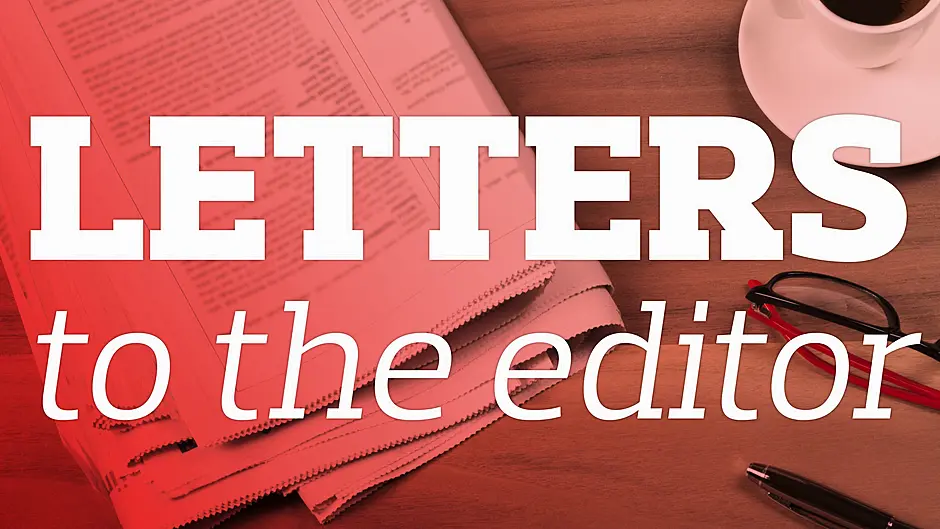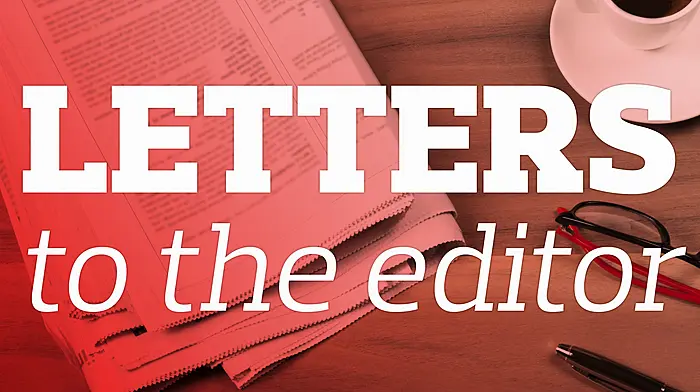EDITOR – In Ireland we consistently take food supply for granted. This is largely due to the fact that we continuously produce more food than our population of 5m people consume.
However, this wasn’t always the case, especially during the great famine in 1840s and 100 years later in the 1940s when World War Two was raging.
Those who are old enough to remember the 1940s will have known about rationing books and food coupons which were then compulsory to purchase a rationed food supply for families to feed themselves. While it is unlikely that Ireland will ever experience this level of food shortage again, it is still foolish and imprudent to take food security for granted. Due to the war in Ukraine, there is now a serious wheat supply problem emerging, which could escalate to a scarcity of wheat-related consumables including bread.
It is, therefore, vital that the current divisions between climate change activists and the Green Party and farmers as food producers be resolved.
Of course, farming emissions will have to be reduced, which has been acknowledged by most farming organisation. Clearly the effects of climate change are now evident and will require maximum efforts from governments and administrations throughout the world to achieve global emission reduction.
However, in Ireland, it’s the scale of the proposed emission reduction that is at the hub of the current dispute, with Environment Minister Eamon Ryan seeking 30% reduction in farming emissions by 2030. In response, the president of the Irish Farmers Association has stated that 30% is unachievable and would effectively shut down Irish farming and devastate rural Ireland.
As a retired farmer, I think Minister Ryan is being unrealistic in seeking a 30% emission reduction given the importance of food production.
It is therefore vital that the government would fully value food security and allow the farming sector of the economy a lower and more achievable emission threshold.
Diarmuid Cohalan,
Ballinhassig.
Let’s not all rush to condemn AIB
EDITOR – AIB’s attempt to remove cash services from their branches nationwide is not unexpected and we should not be surprised.
We have been moving towards a cashless society for some time with internet and plastic card payments becoming widespread.
Cashless banks, however, also have greater benefits to our society, including a big reduction in crime. Money laundering is a very big problem worldwide and often it can be done through legitimate banking services by spreading ill-gotten gains over different accounts to avoid detection or red flagging.
Revenue evasion is also another problem in the black and grey economies in this country which of course can shelter itself in the form of highly fungible cash.
Bank raids and ATM robberies will also be a thing of the past with cashless banks, which costs had to be passed on to customers.
Electronic transactions are impossible to dispute and a cashless society will enhance legitimate transaction making and leave a digital footprint which is traceable in the case of fraud.
Cash transit logistics is also an overhead by banks which is unnecessary in this digital age. This is the biggest frontline service attempted policy move ever made by a bank in this country, but it does not mean that it should have received a knee jerk reaction with anger from the old retainers because of substantial change.
Let’s not go over the top in condemning AIB’s attempted move in trying to terminate cash services through their branches, and accept that it might bring very positive benefits to our society by reducing the cancer of crime through the cash economy and perhaps reduced banking costs at An Post?
Is there any substantive reason why EFT point-of-sale ‘tap and go’ transactions cannot be carried out without cash, rather than lugging around paper and coins?
Maurice Fitzgerald,
Shanbally, Co Cork.
Options for upskilling coastal economies
EDITOR – The fast-changing and evolving landscape of Ireland’s post-Brexit blue economy means the skills needed for the types of jobs in coastal communities are also changing and evolving.
Individuals already working in the blue economy who want to develop their career or those who would like start to work in the blue economy are being urged to apply for training grants of up to €10,000 available under the €25m Brexit Blue Economy Enterprise Scheme, which is being administered by Bord Iascaigh Mhara (BIM).
The blue economy covers a wide range of economic activities within coastal communities such as fisheries, aquaculture, and tourism.
As well as providing funding of up to €200,000 for capital projects, the recently launched scheme also provides funding of up to €10,000 per applicant for skills development and training.
Given that many courses begin term in the autumn, BIM is calling on all interested parties to visit its website to learn more about the grants that are available for skills and development.
One of the certainties for anyone working today is the need to be able to adapt to change. For example, having digital skills is increasingly important for many seafood and other blue economy businesses, as more transactions move online. This is just one example of where an individual could really enhance their skills for the benefit of themselves and the wider coastal community.
The Brexit Blue Economy Enterprise Scheme is an initiative of the Government of Ireland and is being administered by BIM.
In Ireland, about 1.9m people live within 5km of the coast and many communities along the Irish coast depend on blue economy industries such as tourism, fishing and aquaculture. Anyone interested in availing of the scheme is urged to visit bim.ie
Caroline Bocquel,
Corporate Services Director,
Bord Iascaigh Mhara (BIM),
Dun Laoghaire.










